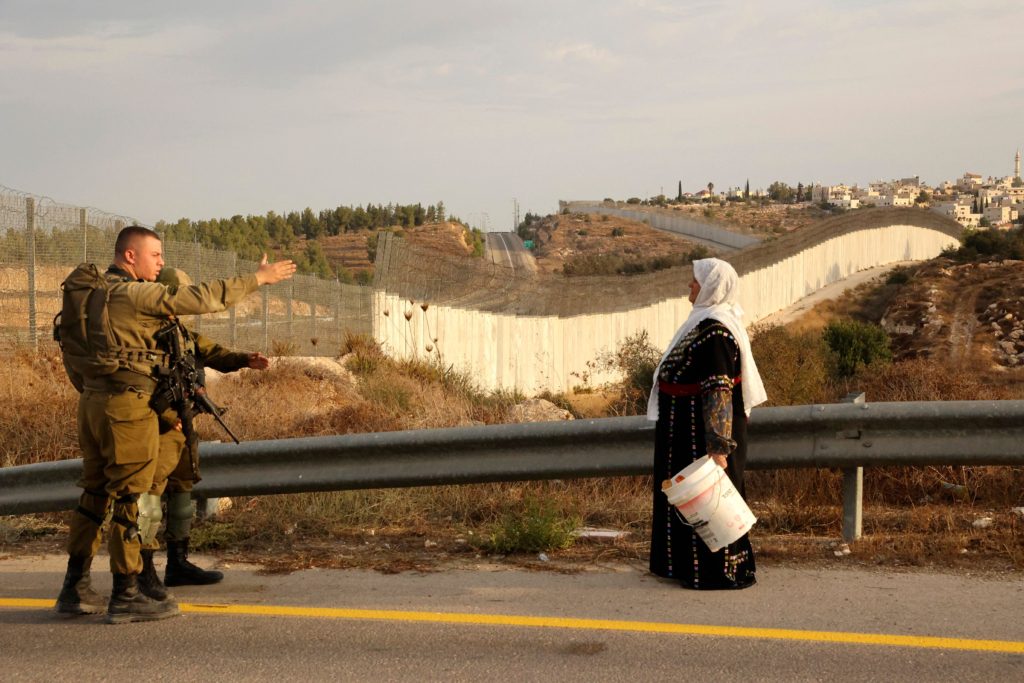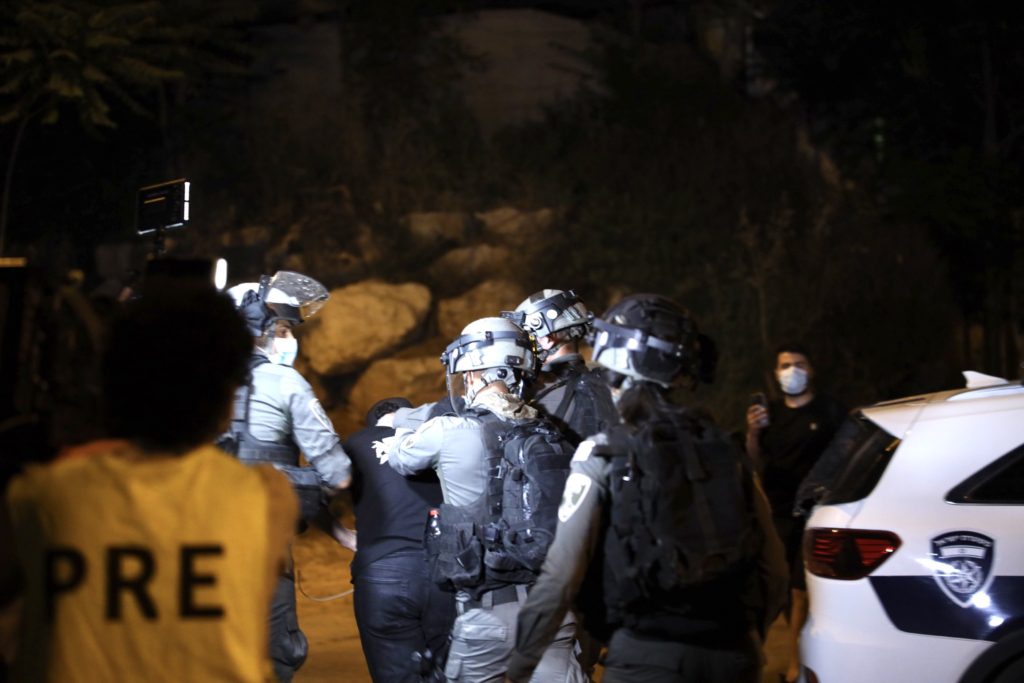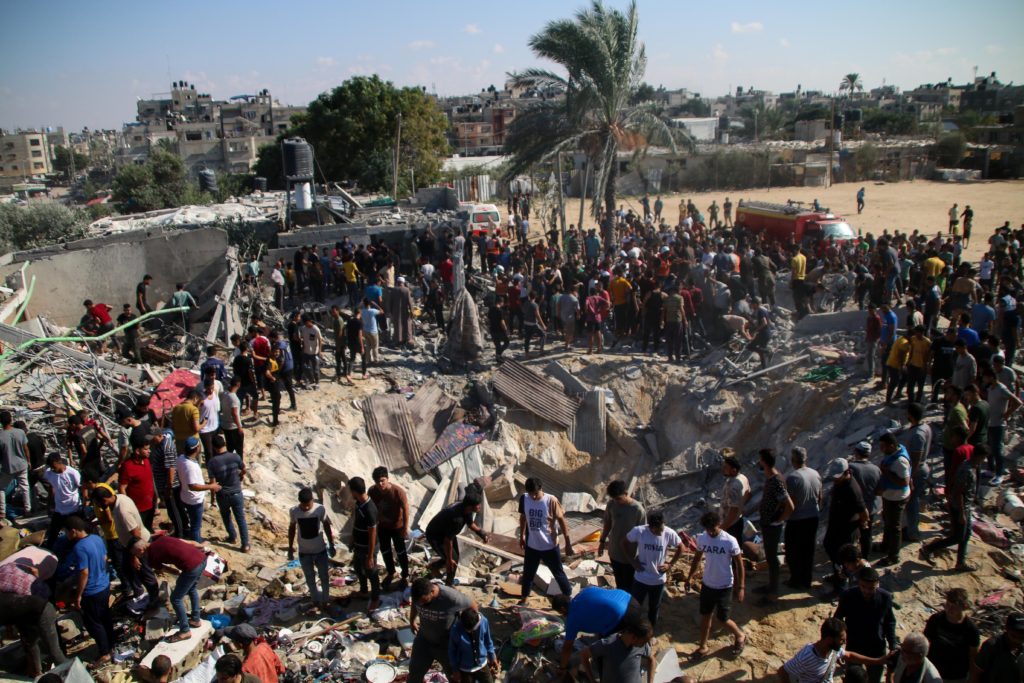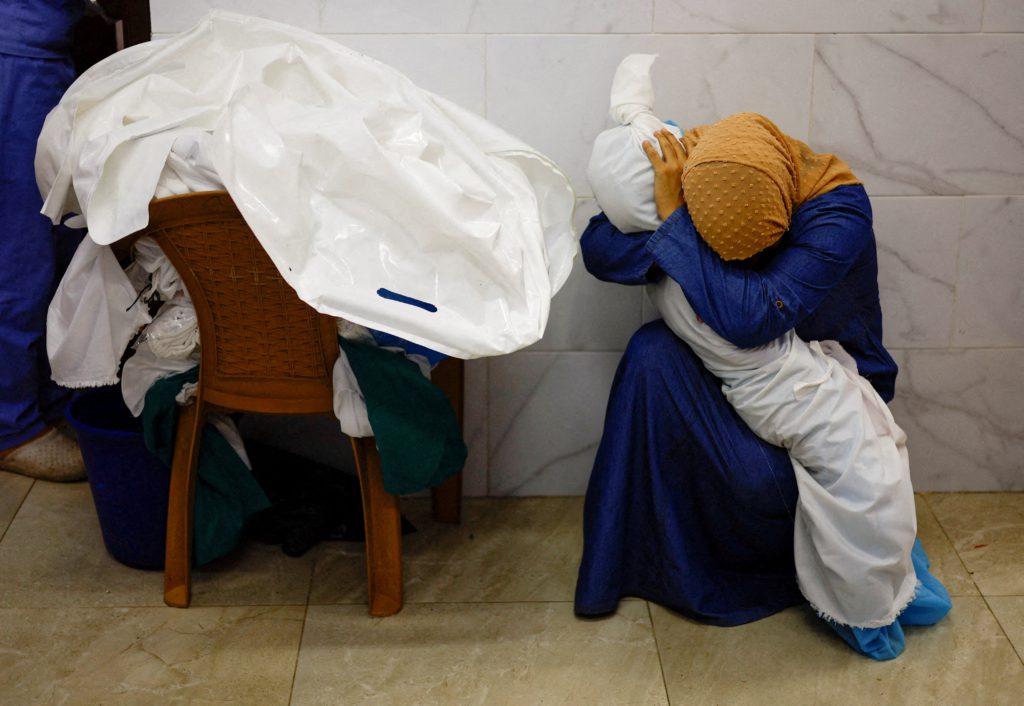Israel must end its brutal occupation of Gaza and the West Bank, including East Jerusalem, which it has maintained since 1967, said Amnesty International, as public hearings begin at the International Court of Justice (ICJ) to examine the legal consequences of Israel’s prolonged occupation.
The public hearings are taking place in the Hague from 19 to 26 February after the UN General Assembly adopted a resolution in December 2022 to request an advisory opinion from the ICJ on the legality of Israel’s policies and practices in the Occupied Palestinian Territories (OPT) and the consequences of Israel’s conduct for other states and the UN. More than 50 states, the African Union, the Arab League and Organisation of Islamic Cooperation are scheduled to participate in the proceedings.
The world must recognize that ending Israel’s illegal occupation is a prerequisite to stopping the recurrent human rights violations in Israel and the OPT.
Agnès Callamard, Amnesty International’s Secretary General
“Israel’s occupation of Palestine is the longest and one of the most deadly military occupations in the world. For decades it has been characterised by widespread and systematic human rights violations against Palestinians. The occupation has also enabled and entrenched Israel’s system of apartheid imposed on Palestinians,” said Agnès Callamard, Amnesty International’s Secretary General.
“Over the years, Israel’s military occupation has evolved into a perpetual occupation in flagrant violation of international law.
“The current conflict raging in the occupied Gaza Strip, where the ICJ has ruled there is a real and imminent risk of genocide, has brought into sharp focus the catastrophic consequences of allowing Israel’s international crimes in the OPT to continue with impunity for so long. The world must recognize that ending Israel’s illegal occupation is a prerequisite to stopping the recurrent human rights violations in Israel and the OPT.”
‘Perpetual’ occupation
Under international humanitarian law, occupation of a territory during a conflict is meant to be temporary. The occupying power is required to administer the territory in the interest of the occupied population and to preserve as much as possible the situation that existed at the beginning of the occupation, including by respecting existing laws and refraining from introducing demographic changes and tampering with the territorial integrity of the occupied territory.

Israel’s occupation has failed to align with these basic principles of international humanitarian law. The duration of Israel’s occupation – spanning more than half a century – coupled with the authorities’ illegal official annexation of occupied East Jerusalem and de facto annexation of large swathes of the West Bank through land confiscation and settlement expansion, provide clear evidence that Israel’s intention is for the occupation to be permanent and for the benefit of the occupying power and its own citizens.
The Gaza Strip remains occupied even after the withdrawal of Israeli forces and removal of settlers in 2005 as Israel has retained effective control over the territory and its population, including through its control of its borders, territorial waters, air space, and population registry. For 16 years, the occupation has been experienced in Gaza through Israel’s illegal blockade that has severely restricted movement of people and goods and has devastated Gaza’s economy, and through repeated episodes of hostilities that have killed and injured thousands of civilians and destroyed much of Gaza’s infrastructure and housing.
“All states must review their relations with Israel to ensure that they are not contributing to sustaining the occupation or the system of apartheid. As European foreign ministers gather in Brussels today, the need to make a clear and united call for an end to Israel’s occupation has never been more urgent,” said Agnès Callamard.
Life under occupation
Palestinians living under Israeli occupation are subjected to a myriad of human rights violations, maintained by an institutionalized regime of systematic domination and oppression. The discriminatory and repressive laws, ostensibly adopted as part of the occupation but effectively serving the objectives of the Israel’s system of apartheid, have fragmented and segregated Palestinians across the OPT, while unlawfully exploiting their resources, arbitrarily restricting their rights and freedoms and controlling almost every aspect of their lives.
Even before the latest hostilities, Palestinians in Gaza had been subjected to numerous Israeli military offensives – at least six between 2008 and 2023 – in addition to an enduring land, air, and sea blockade, which has helped maintain Israel’s effective control and occupation of Gaza. During those offensives, Amnesty International documented a recurrent pattern of unlawful attacks, amounting to war crimes and even crimes against humanity, while the enduring blockade constitutes collective punishment, also a war crime.
For 56 years Palestinians in the OPT have been living trapped and oppressed under Israel’s brutal occupation, subjected to systemic discrimination.
Agnès Callamard, Amnesty International’s Secretary General
In the West Bank, including occupied East Jerusalem, Palestinians routinely face excessive use of force, unlawful killings, arbitrary arrest, administrative detention, forced displacement, home demolitions, confiscation of land and natural resources, and denial of fundamental rights and freedoms. Israel’s multi-layered closure system, fortified by mass surveillance, physical barriers and legal restrictions, including an illegal wall/fence, hundreds of checkpoints and roadblocks, and an arbitrary permit regime, has curtailed Palestinians’ freedom of movement and perpetuated their disenfranchisement.
Among the most emblematic examples of Israel’s outright disregard for international law has been the establishment and incessant spread of Israeli settlements throughout the OPT and the illegal annexation of occupied East Jerusalem immediately after the 1967 war which was constitutionally enshrined in 1980. There are currently at least 300 illegal Israeli settlements and outposts in the West Bank, including in occupied East Jerusalem, with a population of over 700,000 Israeli settlers.

“For 56 years Palestinians in the OPT have been living trapped and oppressed under Israel’s brutal occupation, subjected to systemic discrimination. Every aspect of their daily lives is disrupted and controlled by Israeli authorities, who place restrictions on their rights to move around, earn a living, pursue educational and professional aspirations, and enjoy a decent quality of life, as well as depriving them of access to their land and natural resources,” said Agnès Callamard.
“Israel has also continued its vicious land grab policies relentlessly expanding illegal settlements in violation of international law with devastating consequences for Palestinians’ human rights and security. Violent Israeli settlers have been attacking Palestinians for decades with virtually total impunity.”
A draconian system of control
Israel’s draconian system of control over the OPT includes a large network of military checkpoints, fences/ walls and military bases and patrols as well as a string of repressive military orders.
Israel’s control of the OPT’s borders, the population registry, the supply of water, electricity, telecommunication services, humanitarian and development assistance, and the imposition of its currency have had devastating effects on the economic and social developments of the Palestinian people in the OPT.
This control has reached unprecedented levels of cruelty in the Gaza Strip where Israel has maintained a 16-year illegal blockade which has been further tightened since 9 October 2023. The blockade, coupled with Israel’s recurrent military operations have plunged the Gaza Strip into one of the gravest humanitarian and human rights crisis of modern times.
“As the occupying power Israel has an obligation to ensure the protection and welfare of all those residing in the territory it controls. Instead, it has perpetrated gross and systematic human rights violations with impunity. Israel cites the need to maintain security as the reason for its cruel policies. But security can never justify apartheid, illegal annexation and settlements, or war crimes against the protected population. The only way to ensure security for Israelis and Palestinians is to uphold human rights for all,” said Agnès Callamard.

Ending the occupation would mean restoring Palestinians’ rights by lifting the brutal blockade on Gaza, dismantling Israeli settlements in the West Bank, including East Jerusalem and reversing its illegal annexation. It would allow Palestinians to move freely in the areas where they live and allow families separated by different identification legal statuses – such as the Jerusalem residency and West Bank or Gaza Strip – to be reunited. It would alleviate mass suffering and end widescale human rights violations.
It would also contribute to tackling one of the root causes of the recurrent violence and war crimes against Israelis, thus helping to improve human rights protection and secure justice and reparation for victims on all sides.

Background
On 30 December 2022, the UN General Assembly adopted resolution A/RES/77/247, in which, it requested the International Court of Justice for an advisory opinion on key questions regarding the legal consequences arising from its prolonged occupation, and settlement and annexation of the Palestinian territory occupied since 1967, how the policies and practices of Israel affect the legal status of the occupation and what legal consequences arise for all states and the UN from this status.
The Court is expected to issue its advisory opinion later this year.
For six decades, Amnesty International has been documenting how Israeli forces have committed grave human rights violations in the OPT with impunity. In 2022, the organization issued Israel’s apartheid against Palestinians: Cruel system of domination and crime against humanity, a report which highlights the entrenched role that Israel’s military and its occupation have had in perpetuating the system of apartheid. Many of the report’s findings and recommendations underline the urgent need for an end to Israel’s occupation to remove the environment that enables the commission of crimes against humanity and war crimes.


